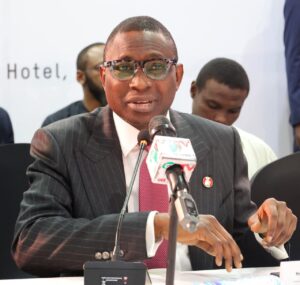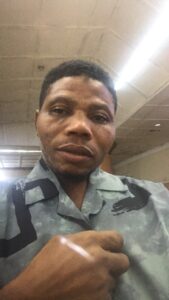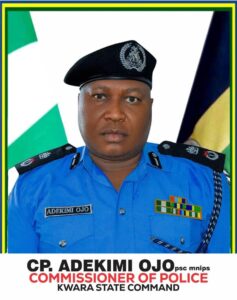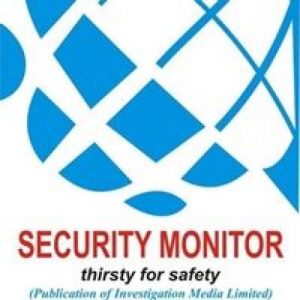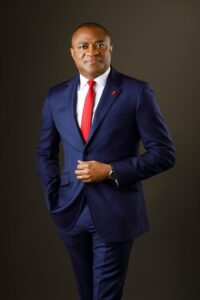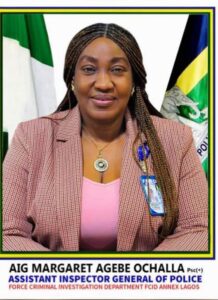Yoruba Begs Asiwaju Bola Tinubu To Contest For President
Assessing the state of on-going calls for Restructuring in Nigeria, Egbe Omo Oduduwa, a Platform for Yoruba Self-Determination, has concluded that achieving Restructuring cannot be left to appealing to the reason and goodwill of anyone in power. Doing so assumes that opponents of Restructuring will be able to see the logic in the demand and act accordingly, hence the expectation that “reason” will prevail. Reason has not prevailed, and it will not. Restructuring will begin to have practical meaning and impact when it is taken from the realm of “reason” and placed within the context of practical politics, hence, the necessity for Asiwaju Tinubu to run for the office of the President of Nigeria with Constitutional Re-Formation of Nigeria within the context of Yoruba expectation as the sole electoral Manifesto.

The President of Nigeria, Muhammadu Buhari, had, in his New Year message, pooh-poohed the entire notion of Restructuring anchored on what he says is our “impatience”. The President says, “having rejected the Parliamentary System, we must give a long period of trial and improvement before the system we have adopted is anywhere near fit for purpose”. It is noted that the President did not address the question of “we”, that is, who rejected and adopted what, just as the question of what constitutes a “long period” more so when there was a previous experience which was not given “a long period of trial and improvement” before the military of which he was a major part truncated it. This previous experience, the First Republic, was adjudged to have offered the best template for socio-economic development ever experienced in the country
It is therefore certain that President Muhammadu Buhari New Year’s message was an election Manifesto on the platform of the APC as it dwelt mainly on his administration’s economic initiatives which he considered to be on course with the “Change Agenda” that propelled his party into power. However, on the most pressing issue of Restructuring, he dismissed it in favor of what he called prioritizing “process” rather than Restructuring. In so doing, he doubled down on the issue of “we” when he stated that, “We tried Parliamentary System: we jettisoned it”
The president simply befuddled the issue; for nowhere did “we” jettison anything and the question becomes who are the “we” the president referred to?
It has become fashionable for usurpers of our Sovereignty, in this case, the military, to ascribe their actions and inactions to the generality of the Peoples of Nigeria. The story of how the parliamentary System was destroyed is very well known, being an act predicated upon military intervention in January 1966 upon which General Aguiyi Ironsi took over power and proceeded to abrogate the Regions just as he decreed the Unitarization of Nigeria. It must be noted that the NCNC under Nnamdi Azikiwe, the major proponent of Unitarization during the anti-colonial struggles was also in favor of the Parliamentary System just as its opponents, the AG and NPC advocating Federalism, were.
It is thus obvious that Muhammadu Buhari must have had the military at the back of his mind when ascribing jettisoning the Parliamentary System to “we”, just as the 1999 Constitution, also a military document, was deemed to be a document created by “We, the People”, which is false in every sense of the word.
It must also be remembered that when President Buhari, in the same message, stated that “no human law or edifice is perfect”, the question as to his (and others’) previous statements as to the “indivisibility of Nigeria” arises since “indivisibility” assumes perfection. Furthermore, if, as the President stated, “Whatever structure we develop must periodically be perfected according to changing circumstances and the country’s socio-economic developments” is to be taken seriously, perfecting a structure cannot proceed from the point of immutability, otherwise, the movement towards perfection becomes the reiteration of “what is” and not a movement into “what is to be”. Where “what is” becomes an end, and not where we want to be, thereby negating the movement towards perfection. A movement towards perfection implies a defect in the existing situation; such defect must be cured if there will be any move towards perfection. As it is in Nigeria, the defect is in its structure, hence the almost permanent calls for Restructuring. More so when the creation of the current structure was against the natural existential realities of those concerned. Meaning, “Nigerians” had no say in the coming into being of the country; the only time they actively participated in their becoming was through the various Constitutional Conferences which ultimately agreed on a Federal System via a Parliamentary System only to be neutralized by the military which was also a creation of the colonial forces who amalgamated the various Peoples and Cultures into what became of Nigeria.
The issue of the Vice President being from Yorubaland and the current APC government being some sort of alliance between the North and West must be addressed. If Asiwaju Tinubu runs, what becomes of the alliance and the office of the Vice President?
The Egbe is of the view that expecting the alliance and the VP office to remain part of Buhari’s calculation is an unnecessary distraction. First, he has been courting the East and may indeed have an Easterner as his VP, jettisoning the current Vice President. If this happens, the North and West alliance is dead, anyway and we will have nothing to fall back on, save relying on Buhari for succor, where he becomes the “arbiter” of a 2019-induced Yoruba-Igbo political rivalry.
In any case, Restructuring is so fundamental to Yoruba existentialism such that the APC was given a pass in 2015 mainly because of its promise, in its Manifesto, to initiate moves towards True Federalism which has now been repudiated by the presumed 2019 flag bearer and the beneficiary of the 2015 “accord”. The only choice, therefore, is for the Vice President to withdraw from the race in the event of Asiwaju running for the office and let President Buhari choose whomever he wants from anywhere.
For President Buhari, replacing “True Federalism” with “processes” and using existing institutions of the Nigerian state necessarily implies the creation of a supra-national state. Supra-national in the sense that ethno-national centers of power, especially the non-Fulani centers, would have to be neutralized as a necessary pre-condition. And, this is to be achieved partly through the creation of alternative and/or new power bases through the instrumentality of presidential patronage or force of arms. There is one point (an all-important point for that matter) with which we should all agree. It is to the effect that the Hausa-Fulani block will never agree to a meaningful/significant Restructuring of Nigeria without fighting back.
While it is correct to say that a few of their elite, having grasped the true meaning of the concept of enlightened self-interest, may be trying to convince others of the need to accept change, such elements are in the minority. On the one hand, their strategic goal remains the same (i.e. a maintenance of, or reversion to a favorable status). Their tactical approach, on the other hand, has many nuances and the force of expression of each is, therefore, different; the aim is to slow down/prevent efforts at Restructuring and, failing which, there might as well be a general breakdown of law and order.
What then are some of the elements of this tactical approach?
The “sudden” resurgence of Fulani herdsmen terrorism, especially in the Middle Belt as a forerunner of neutralizing its centers of ethno-National power, initially via the “Federal Grazing Bill” and now the “Cattle Colonies” which are attempts at ensuring unfettered Fulani migrations into the “cattle colonies”, where, in short order, every state will have a sizable Fulani population that will be able to upend any attempt at True Federalism/Self-determination/
This tactical approach is enabled by all sorts of intellectual somersaults coming from “Northern intellectuals” who introduce such concepts as “Constitutionally guaranteed freedom of movement” (as if herdsmen terrorism left unpunished by the state apparatus qualifies as such), and the “politicization of legal regimes”, whatever that means. Herdsmen violence is being excused by these “intellectuals” even when the entire security apparatus of the country is controlled by the Center which is itself controlled by the “North”.
Despite these, Asiwaju Tinubu running for the Office of the President will not be tantamount to cutting the nose to spite the face. So far, and despite President Buhari’s chest-beating on his administration’s economic initiatives, the bottom line is that such initiatives were and are not based on any economic philosophy but mere electioneering antics. In other words, these initiatives were embarked upon both to ensure acceptance by Nigerians as well as position the administration for a second term. The fundamental question remains, as to whether a dysfunctional post-colonial state as conceived by the colonial power, can develop an economic philosophy for development, regardless of any electioneering gambits. Therefore, the conclusion can easily be reached that factors like those mentioned earlier other than economic development is far more important for the stability of the post-colonial state, now under Fulani hegemony. So, the Yoruba not having a Vice President will only ruffle a few political egos in the land, but we would have regained our political initiative.
This initiative for Restructuring was lost during the Babangida years, with his “new breed” assumptions which in effect was also aimed at neutralizing Ethno-National Centers of power. It was regained because of Yoruba resistance to the Abacha dictatorship and had since been going through a lot of challenges with another opportunity now on the horizon for a meaningful engagement.
A cursory look at the trend in the Restructuring exercise and its importance to the 2019 elections shows the PDP already “zoned” the Presidency to the “North” with Atiku Abubakar being touted as interested in running. And for a while, Atiku Abubakar was in the forefront of calling for True Federalism and Restructuring and indeed placed all his political bets on the subject, insisting that Nigeria can neither make any headway, politically, nor enjoy economic advancement without it only to backtrack by now promoting the notion that provision of jobs for the youth must be the primary focus of any incoming administration, as if True Federalism and Restructuring are antithetical to provision of jobs for the youths. At one point, Governor Ayo Fayose of Ekiti State, also of the PDP, expressed interest in contesting but is now exploring possibilities of becoming a clergyman after his term as Governor. So, we wait and see what happens with the PDP.

On his part, Pastor Tunde Bakare, of the Latter Rain Assembly, a Yoruba, we assume, who had variously proclaimed his unalloyed personal and political loyalty to the person of Muhammadu Buhari, has now said God asked him to contest for the Presidency. The pastor and president Buhari are on the same page on Restructuring so it is doubtful if he will want to contest against him, unless, of course, God asks him to. According to him, God has not told him when he should contest; and of course, there is no idea under which party platform this will take place and what his political Manifesto will be. There are over 100 political parties from which he can choose from.
Pastor Bakare had, in his Independence Day message, glorified and eulogized colonialism via his pulpit. He praised the European “civilizing mission” wrapped around colonial conquest as the source of conflict resolution among what he referred to as the “warring communities” in the Niger Area. He further stated that “before the creation of the Nigerian State, there was no Yoruba Nation, there was no Igbo Nation, there was no Hausa nation, neither was there an Ijaw Nation. We must not be misled by nostalgia for a spurious harmonious past or the myth of homogenous ethnic groups that is far removed from reality. The area around the Niger was marked with unrest, continuous intergroup conflict, subjugation, enslavement and oppression of the weaker by the stronger until Nigeria provided the possibility for peaceful co-existence. For this, we must appreciate the Nigerian State, we must celebrate our Nigerianness and we must gravitate towards strengthening our nationhood rather than cursing our blessing.”
Aside from the fact that such a statement is antithetical to the concept of independence from colonialism, which, by the way, was embarked upon by the Peoples of Africa utilizing various means, of which outcome, for Nigeria, Pastor Bakare benefited from, as his Assembly will probably not exist since the emergence of African denominations were direct consequences of anti-colonial sentiments. Also, he was following the thought processes laid down by the Fulani hegemonist historian Yussuf Bala Usman and his fellow travelers like Nuhu Ribadu and ended up comparing apples with oranges. Otherwise, why would there be any need for Independence if Nigeria “provided the possibility for peaceful co-existence”? When he says there was no Yoruba Nation and from there leaped to the Nigerian State, it shows some confusion on the question of Nation, the Nation-State and State. A state is a governing/ruling apparatus that does not exist outside of the Nation. If the Pastor is to be believed, and if there was no Yoruba Nation, there would obviously not be a Yoruba State apparatus. The pastor, by denying the existence of pre-colonial Nations is in effect saying there was no Oyo Empire, for example. An Empire of whatever size has a governing apparatus, a “State”, otherwise it is not an empire. Moreover, what separates a Nation from just a group, is the commonality of expectations expressed through cultural, political and economic prisms for which Yorubaland is very much in tandem with: from the Obaship, to the Cosmogony (despite introduction of Christianity and Islam) and more importantly, the major cause of the Yoruba Civil Wars, which was the attempt to wage a “war to end all wars” in Yorubaland and which ultimately pitted Yoruba Unitarists against the Yoruba Federalists. There would not have been such an internal conflict if there was no sense of Yoruba Nationhood, which was again demonstrated at the Peace Treaty to end the wars. The Pastor must be reminded that the Nigerian State, of which he was so enamored of, is itself the result of British subjugation, enslavement and oppression of the weaker by the stronger. To agree to the finality of “oppression of the weaker by the stronger” as the Pastor does, is to deny the essence of any form of resistance, including anti-colonialism.
With all these, Asiwaju Tinubu contesting will place the entire quest for Restructuring in the hands of Yoruba People who will become its driving force especially when Asiwaju is able to win Yoruba/SW votes entirely on the strength of a Manifesto anchored on True Federalism.
Leaving aside the Yoruba angle for the moment, attention to other Nationalities in Nigeria, mainly the Niger Delta and the Igbo must be drawn into the equation.

In opposing President Buhari’s New Year message, Chief Edwin Clark, leader of the Niger Delta peoples, was quoted as saying that “The people of the South-South are the most affected. 87 per cent of our revenue comes from the South-South. Nigerians believe in restructuring. I was very much disappointed that the President said he does not want restructuring. “Northerners are talking of restructuring; you have heard the Sultan of Sokoto, Balarabe Musa all of them are part of majority of Nigerians talking about restructuring. El-Rufai heads APC committee on restructuring. Even the northerners have not rejected restructuring. “The National Assembly has no choice but must follow the people, what the people are saying if majority of Nigerians say they want restructuring, the National Assembly has no choice”.
Edwin Clark should know, having been in the leadership of the Niger Delta since the First Republic. Niger Delta “militants”, in pursuit of Restructuring, have carried out attacks on Nigeria’s oil installations which Chief Clark says produces 87% of Nigeria’s revenue. It was also Niger Delta’s insistence on “Resource Control” which truncated Obasanjo’s plan to ram through his own version of “Restructuring” which some have claimed was a back-door towards elongating his tenure.
The Niger Delta “militants” attacks against oil installations became reduced to security issues, and the Nigerian State relied on the security apparatus to try to neutralize these efforts ultimately ending up with an amnesty to the “militants”. This can also be likened to current Fulani herdsmen terrorism in Nigeria, where the president has recently decided to take some form of action against them and touting “national security”. The difference between the Niger Delta agitators and Fulani herdsmen is that the run up to 2019 will become clearly linked to issues of internal security upon which the current president will stake his claim even though the Fulani herdsmen issue is clearly political. But these herdsmen have an advantage in that they are ensconced within a political paradigm already anchored on control of the Center while the Niger Delta, during their “militancy” had no such context.
The more reason why Chief Edwin Clark and the Niger Delta, especially with such groups like the Ijaw National Congress, the Ijaw Youth Congress, Lower Niger Congress, Chikoko Movement and others, should also flow with the proposition to Asiwaju Tinubu, of course, within their own context, which implies having someone of their own choosing, from the Niger Delta, to also run for the office of the President, again with Constitutional Re-Formation of Nigeria as the sole electoral Agenda and their quest for Restructuring and Resource Control will be in the hands of the Peoples of the Niger Delta.

Similarly, for the Igbo, they should get off their high horse of describing themselves as the sole “nation builders”, cease their perpetual permutations on the centralized Presidency, and follow the Niger Delta and the West to have their own candidate run for the office of the President also with Constitutional Re-Formation of Nigeria as their sole electoral Agenda thus putting all of their expectations in the hands of Igbo people, more-so when groups like Ohanaeze, T.I.N, Igbo Ekwunie, Nzuka Umunna, with its “handshake across the Niger” and all of the sundry Biafra groups, have expressed disenchantment with Nigeria’s current structure and with the deputy Senate President, an Igbo, Ike Ekweremadu in the forefront of advocating True Federalism, with his description of Nigeria’s federalism as “feeding Bottle federalism”. He even recently advocated the necessity to return “to the original dream of true federalism which was a product of negotiation, compromise and accommodation.” Continuing, Ike Ekweremadu says “Sadly, the rain started beating us from that fateful January coup, especially following the violation of the covenant of our fathers by the promulgation of Unitary Decree, 1966. Although the July 1966 counter-coup was, among other things, predicated on the need to correct General Aguyi Ironsi’s misadventure, subsequent regimes after him have steadily and deliberately corrupted the architectural design and undone all the foundations laid by the founding fathers. For more than half a century, we have done every imaginable violence to the Federal principles and the results have been disastrous…In simple terms, therefore, the quest for restructuring is a quest for a return to the old covenant, the original foundation and master plan agreed on and laid down by our fathers”.
And now especially for the Igbo having been given the runaround and exposing their serious lack of strategic initiative through the Nnamidi Kanu-led gambit, the Igbo should transcend the political limitations imposed on themselves by the Igbo themselves and flow with the proposition, to wit, they should select, from among themselves, someone to run for the office of the President of Nigeria with Constitutional Reformation of Nigeria as the sole Manifesto. There is no better foundation for a handshake across the Niger than when all the hands pursue Restructuring via making it an electoral issue as being canvassed.
While attempts are being made to reduce the definition of Restructuring to nothingness to take the bite off it, every Nationality in Nigeria has a duty to itself and to others to re-establish a legitimate and valid claim to their being makers of their own history. For a while, the British colonial power made all of us objects of British history; and for another while, as the Peoples of Nigeria, we became subjects of our own history through the instrumentality of the First Republic. Yet, the colonial forces aimed for the jugular of the Peoples through military intervention. All the Peoples of Nigeria must never forget that the military and therefore any security situation Nigeria finds itself is a function of the colonizing mission with the military as its local agency. Therefore, Nigeria is being forced to remain as it is. To make matters worse, all known universally acknowledged definitions of Federalism have been thrown overboard and substituted with all sorts of shenanigans passing for ruling elite thinking. It is therefore time the various Peoples to become their own subjects, for themselves and no longer objects of colonialism and its Nigerian State by making the 2019 Presidential Elections the platform for carrying it out and with Constitutional Re-Formation of Nigeria as the sole electoral Agenda albeit in its different Ethno-National contexts.

Along this line, the Chief Anthony Enahoro-led Movement for National Re-Formation’s made the issue clearer by its promotion of Lingual-Territorial entities as Nigeria’s Federating Units. The movement’s suggested number of Lingual-Territorial/
- Ibibio (2).Ijaw (3). Igbo (4).
Urhobo (5). Edo (6). Yoruba (7). (8) Tiv (9). Gbagyi (10). Hausa-Fulani (11). Kanuri. The other six (6) of the Regions should be multi-Nationality regions, as follows: (i) Nationalities in Cross River and Akwa Ibom states (i.e. Eket, Annang, Oron, Ibeno, Efik, Ejagbam, Korop, Boki, Bakwara, Yakurr, Yala). (ii) Nationalities in Rivers and Bayelsa states (i.e. Ikwerre, Etchei, Ekpeeye, Engeni, Ogba, Eleme, Ndoni, Ogoni, and Andoni). (iii) Nationalities in Delta State (i.e. Ika, Ndokwa, Warri, Isoko). (iv) Nationalities in West Middle Belt, i.e. Zuru, Kambari, Bariba, Bussa, Karekare, Ngizim, Angamo, Bola, Funne, etc. (v) Nationalities in Central Middle Belt, i.e.: (a) Ebira Group: Ebira, Uku, Ebira-Ugu, Ebira-Panda, Etuno-Igarra, Ebira Mozun, Bassa-Nge. (b) Igala Group (c) Upper Benue Group: Alago Eggon, Gwandara, Mada, Kakanda, Mighili, Bassa-Komu, Ninzom, Arum etc. (vi) Nationalities in East Middle Belt, i.e. (a) Plateau Group: Ngas, Berom, Afezere Taroh, Goemai, Nmavo – Jukun, Amu, Pyem, Youn etc. (b) Taraba Group: Chamba, Jukun, Kuteb, Mambila, Kona, Kunni, Kaanab, Ndoro, Abakwa, Mumuye, Yububen, etc. (c) Savanna Group: Bura, Tangale – Waja, Bachama, Manghi, Kilba, Yungu, Mwanna, Bwazza Mbula, etc.
And what if Asiwaju Tinubu objects to this proposition and refuses to go along, for whatever reasons? Asiwaju would be committing his greatest and possibly politically fatal blunder in his entire political carrier. Having come this far in his political interventions, the least he could do would be to place his massive political machine and goodwill behind any other Yoruba person willing to go the whole hog. Otherwise, 2019 would mark the capitulation of the Yoruba to absolute Fulani hegemony in Nigeria—at least for a time.
Also, if other Nationalities fail to take up the challenge as already canvassed, the least the Yoruba Nation would face would be like Catalonia, with the Legitimacy of our quest already achieved and which will further deepen the Yoruba drive towards Self-Determination.
True Federalism must become the Electoral issue in 2019
Shenge Rahman, Femi Odedeyi
For and on behalf of Egbe Omo Oduduwa

